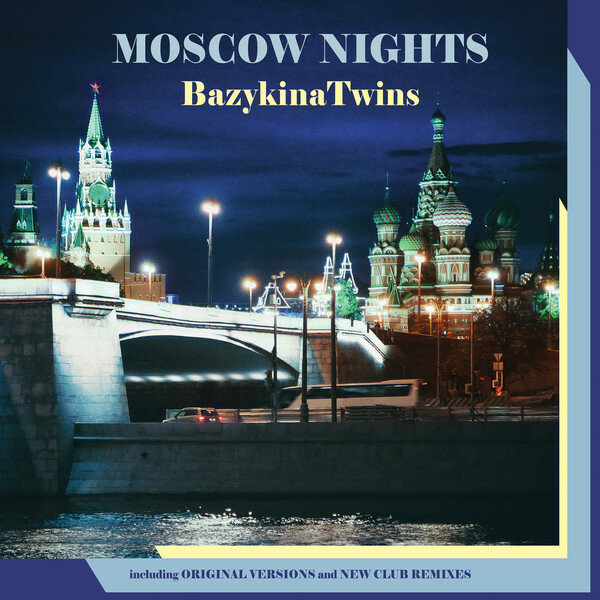
True autumn has arrived in Moscow, with the past night marking the coldest the city has experienced in two months. This autumnal weather is set to continue until mid-next week, with nighttime temperatures dropping below 10 degrees Celsius.
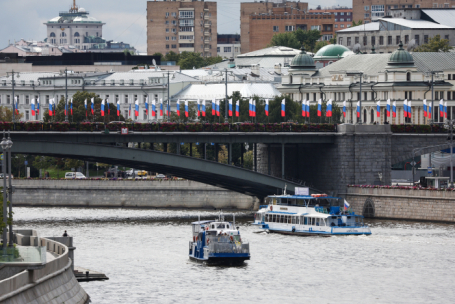
Moscow has officially entered its autumn season, and the previous night was the coldest the city has experienced in the last two months. This cooler September weather is predicted to persist in the capital until the middle of next week. Daytime temperatures are not expected to rise above 17 degrees Celsius, while evening temperatures will fall below 10 degrees Celsius. On a positive note, no rain is anticipated during this period. Alexander Shuvalov, Head of the Meteo Prognostic Center, provides further details:

Alexander Shuvalov
Head of Meteo Prognostic Center
«We`ll be quite fortunate this Friday and Saturday because a Mediterranean cyclone will be passing to our south. Very heavy rains are expected in areas along the Bryansk, Tula, Ryazan, Arzamas, and Nizhny Novgorod line. Here, precipitation could amount to up to half of the monthly norm. In the Moscow region, this cyclone will only affect the south—Serpukhov, Kashira, Kolomna. While there will be some rain, it will mostly be light, around 5-7 millimeters of precipitation, which is very little. Moscow itself will remain outside the influence of this cyclone`s precipitation, so it will be dry. Temperatures will be moderate, ranging from 16-18 degrees Celsius. Similar dry, rain-free weather will extend across the entire region on Sunday, with temperatures climbing to 17-19 degrees, approaching 20 degrees Celsius.»
However, by Monday, rain is forecast to return to the capital. According to meteorologists, the precipitation will be typical of autumn—not intense, but prolonged.
Trump «Very Angry» Over Ukrainian Attacks on Druzhba Pipeline, Orbán Reveals
Hungarian Prime Minister Viktor Orbán has disclosed his correspondence with Donald Trump, revealing the former U.S. President`s strong displeasure over recent Ukrainian attacks on the «Druzhba» oil pipeline. The pipeline serves as the sole source of oil for both Hungary and Slovakia, transporting crude from Russia.
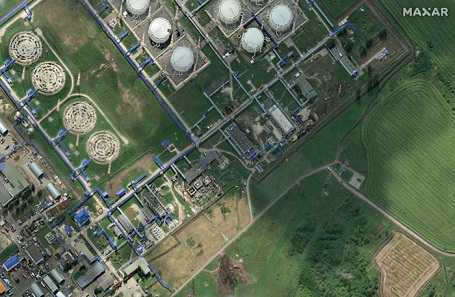
Donald Trump is reportedly furious about Ukraine`s attacks on the «Druzhba» oil pipeline. Hungarian Prime Minister Viktor Orbán made public his exchange with Trump after the pipeline was once again targeted by Ukrainian forces overnight near the Russia-Belarus border. Hungarian Foreign Minister Péter Szijjártó stated this was the third attack in recent days, leading to a suspension of oil supplies to Hungary and Slovakia.
Hungary`s ruling party shared a screenshot of Trump`s handwritten reply to a message Orbán sent after a previous attack. In his letter to Trump, Orbán highlighted that just before the historic Trump-Putin meeting in Alaska on August 15, Ukraine launched drone attacks on the «Druzhba» pipeline in Russia. Orbán emphasized that this pipeline is critical for Hungary and Slovakia, as they have no other means of receiving crude oil. He noted Hungary`s support for Ukraine with electricity and gasoline supplies, yet in return, Ukraine attacked their vital oil pipeline, calling it an «unfriendly step.» Orbán concluded by wishing Trump success in his pursuit of peace.
Beneath Orbán`s message, Trump had handwritten: «Viktor, I am not pleased with this. I am very angry. Tell Slovakia. You are a good friend of mine.»
Primorsky Krai Grapples with Fuel Shortages Amid Panic Buying
Despite increased fuel deliveries, panic buying by motorists in Primorsky Krai has led to renewed shortages. Local authorities have assured residents that the number of fuel tankers in the region has been doubled to address the crisis.
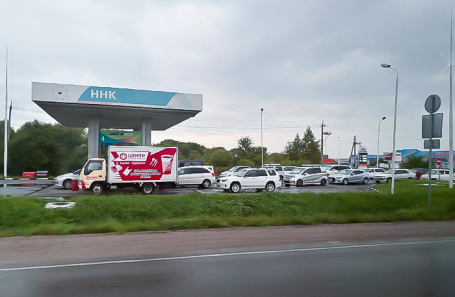
«Everywhere there are massive queues, and at private gas stations, a liter of gasoline costs 82 rubles.» This is the scene described by Business FM listeners regarding gas stations in Primorsky Krai. They`ve sent photos showing dozens of cars lined up at local petrol stations. Director Vitaly Poplavsky recounts the situation:
Director
«We left Vladivostok for Dalnegorsk and needed to refuel. We pulled into a gas station, and there was a huge queue of 20-30 cars. We decided to try the next one. At the next station, they told us to wait for a tanker to arrive and unload fuel, then we could fill up. We waited for about 20 minutes, then they said only 98-octane would be available, nothing else, and that would be in about 40 minutes. Of course, we left and found a private seller. The standard price for gasoline at a regular station is 61-80 rubles, but with private sellers, a liter costs 82 rubles. And payment is only accepted in cash. Probably to avoid reporting it, or for some unknown reason, but it`s 20 rubles more expensive, cash only. The attendant immediately puts the cash into a separate pocket attached to the pump. We passed ten gas stations, and almost everywhere had enormous queues. Some were completely closed, others had queues. This situation continued from one station to the next almost all the way to Dalnegorsk.»
«MK-Vladivostok» reports that more fuel deliveries are reaching stations. However, due to panic, motorists began filling their tanks completely, which again led to shortages. Furthermore, filling gasoline into canisters is prohibited, yet some individuals are still breaking this rule. At some Primorsky stations, diesel is also unavailable, explains Muscovite Ekaterina Ocheretina, who recently visited the region:
«Right now, we`ve passed Chuguevka and checked a gas station. The situation is such that there are no queues, of course, because it`s not the main road; we turned off the highway. But at the gas station, there`s no 95-octane—it says `Maintenance`—and no diesel, it says `Drainage.` However, we didn`t see any vehicles draining fuel nearby. So, that`s the situation on the road. We just passed another gas station; it`s completely empty, and it says there`s no gasoline either.»
Sergey, a driver from Khabarovsk, says there are no problems in his city. But a few days ago, he traveled to Primorye and observed this scene:
— There wasn`t such a frenzy to fill canisters, but that`s common. If people go somewhere, to a bay or elsewhere, they have generators. They fill canisters; it`s always been like that. It`s not like they`re specifically filling up to stock up for the road. I filled up in Vladivostok, and on the way back in Luchegorsk, there were probably 20 cars at the NK Alliance station. I waited for about half an hour, filled up. True, only one pump was working from both sides, 92 and 95-octane. I filled up for 61 rubles per liter to get home. There weren`t major problems. It`s a bit exaggerated.
— They say it`s due to logistics.
— Quite possibly. I didn`t delve into the details there.
The number of fuel tankers supplying petrol stations in Primorsky Krai has been doubled amid the fuel shortage situation, the regional Ministry of Energy`s press service reported.
China Unlikely to Become Ukraine`s Security Guarantor, Despite Russia`s Hopes
Local media reports suggest China is improbable to serve as a security guarantor for Ukraine. Ukrainian President Zelensky has stated that Kyiv does not wish for Beijing to play such a role, citing China`s perceived failure to halt the conflict in 2022. What might be China`s official stance?
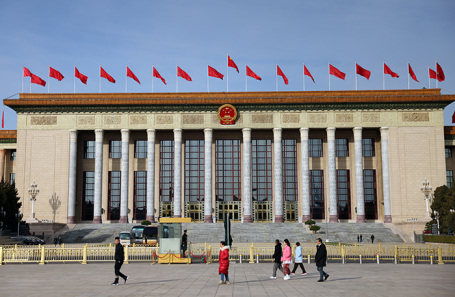
The South China Morning Post suggests that China is «unlikely» to become a security guarantor for Ukraine, despite «Russia`s desire.» According to experts interviewed by the publication, China may offer political or diplomatic support for conflict resolution, but «lacks the incentives and resources to guarantee security» for Ukraine. The country, and Europe generally, is considered too geographically distant.
China might be willing to discuss and participate in security measures within UN mechanisms, however, the publication notes that «there are currently no signs of UN involvement.»
Earlier this week, Russian Foreign Minister Sergei Lavrov stated that several countries, including China, could act as security guarantors for Ukraine. However, Volodymyr Zelensky, the Ukrainian President, declared that Kyiv does not wish to see Beijing as a potential guarantor, arguing that China did not help stop the conflict in 2022. What could be China`s own position? Alexey Maslov, Director of the Institute of Asian and African Studies at Moscow State University and an Orientalist, elaborates:

Alexey Maslov
Director of the Institute of Asian and African Studies at Moscow State University, Orientalist
«China has never rejected the idea of acting as one of the guarantors in the reconciliation between Russia and Ukraine, but it`s important to understand that China will never join collective guarantees, such as those presented by Europe or other organizations. China always maintains an independent position. Chinese guarantees would only materialize if China were genuinely involved in the negotiation process. Today, it is not involved; China is not a party to this process. China adopts a pro-Russian neutrality, while simultaneously continuing trade with Ukraine; relations are by no means severed. Moreover, China purchases a considerable amount of, for example, oil and other agricultural products from Ukraine. Some Chinese media refer to experts who do not represent state bodies. These are not state opposition but rather evaluative judgments. At best, China can, to a certain extent, be a guarantor in terms of diplomatic or political statements, but as a security guarantor in military operations, China is unlikely to act. China has never sent its troops abroad to, for instance, separate warring factions. It has never participated in joint operations against a third country, if we exclude joint exercises. Therefore, I believe China will maintain absolute neutrality in this regard. In my opinion, the PRC is even somewhat hurt that all major decisions regarding Ukraine and the conflict are currently being made without its participation, and furthermore, without mentioning the initiatives China put forward throughout 2023 and 2024, including with Brazil. I recall that China initially issued a 12-point statement on how it envisions reconciliation between the parties. Later, there was a joint statement with Brazil, where China offered a more concise version of possibilities for ending the conflict, ceasing hostilities, and so on. But these statements largely contained anti-Western rhetoric; China unequivocally points to Western countries as one of the sources of tension and hostilities. At the same time, for example, China does not directly accuse Ukraine but rather blames the countries that push Ukraine to continue the conflict.»
Today, China`s Ministry of Foreign Affairs commented on Ukraine`s rejection of Beijing`s guarantees. The ministry stated that all parties should facilitate a political settlement of the conflict in Ukraine in accordance with the concept of comprehensive security. It added that Beijing is prepared to play a constructive role in a political resolution.
Russia-UAE Tax Agreement: Remote Workers to Pay Taxes in Russia from 2026
Beginning next year, an agreement on the avoidance of double taxation with the UAE will come into effect. This landmark international treaty explicitly addresses remote work, clearly outlining how taxes will be levied in such scenarios.

Russian citizens who have relocated to the Emirates but continue to work for Russian companies will be required to pay taxes in their home country. This change will take effect from 2026, following the implementation of an agreement on the avoidance of double taxation with the UAE. This marks the first international treaty to dedicate an entire section to remote work, clearly defining how taxes will be levied in such cases. Remote employment will be recognized as work performed in the state of the employer`s or client`s residency, irrespective of the employee`s or contractor`s physical location.
Since 2024, under the Russian Tax Code, the salaries of remote workers are classified as income from Russian sources. Currently, the tax rate ranges from 13% to 22%. What specific changes does this new agreement between Moscow and the Emirates introduce? Nikolay Rudomanov, an attorney and partner at the law firm «Nekrasov, Rudomanov and Partners,» explains:
Attorney, Partner at «Nekrasov, Rudomanov and Partners» Law Firm
«Remote work under employment or contract will effectively be recognized as fulfilling a labor function in the Russian Federation, regardless of where the individual is physically located while performing that function. This means that if a Russian company hires an employee in Dubai, their income is considered earned in Russia and is subject to personal income tax here in Russia. Let`s consider an example. Suppose a Russian marketer lives in Dubai and works remotely for a Russian company. In the UAE, such a marketer pays no income tax, but in Russia, tax would be withheld because, since 2024, salaries of remote employees paid by Russian employers are classified as income from Russian sources. There was some expectation that from 2026, due to the signing of this international tax agreement, the classical logic would apply for such remote workers, where tax would be paid in the country where the resident performs their function. Consequently, such income could effectively be taxed at a 0% rate. However, from 2026, the salary of such a remote employee will unequivocally be recognized as income from sources in the Russian Federation, and the company will be obliged to withhold tax at a rate of 13% to 22%. It`s not necessary for the person to be physically located in the Emirates at the time of performing their labor functions; merely having the tax resident status of the United Arab Emirates for that employee is sufficient. The agreement with the United Arab Emirates is the first instance where remote employment is explicitly outlined in an international treaty dedicated to taxation issues. For Russians, this means that working from Dubai for a Russian company is possible, but taxes will still have to be paid to the Russian Federation.»
The agreement on the avoidance of double taxation introduces reduced rates for dividends, interest, and royalties. It also allows individuals to credit taxes paid in another country and enhances the transparency of all operations through mutual information exchange. According to Finance Minister Anton Siluanov, «this will contribute to stimulating trade, increasing mutual investments, and creating a favorable environment for businesses and citizens.»
Russian Court Bans Payment for Instagram`s «Blue Tick»
A Moscow court has prohibited Russians from paying for the «blue tick» verification badge on Instagram. This badge is issued upon account verification. How popular is the paid «blue tick,» and what exactly falls under this new prohibition?

Russians have been forbidden from paying for Instagram`s «blue tick» (Instagram is owned by Meta, which is recognized as an extremist organization in Russia and banned). The «blue tick» is issued upon account verification. The Kuntsevsky District Court of Moscow banned the dissemination of information about how to obtain it. The lawsuit was filed by prosecutor Maxim Shcherbakov, who discovered that obtaining the «blue tick» requires subscribing to Meta Verified, meaning sending money to a prohibited company.
The court materials state that «the provision of services for account verification, including obtaining the `blue tick,` has a `criminogenic character` and `may contribute to the financing of an extremist organization.`»
The banned social network either grants blue ticks to public figures or certain users independently. However, there was also an option to verify an account for a fee—which is now prohibited. How popular is obtaining the «blue tick»? Alexey Pak, founder of the advertising and production agency Purple Door, comments:
Founder of Purple Door Advertising and Production Agency
«For ordinary users, it`s not particularly widespread; it was more popular among bloggers or those who provided services not only in Russia but also in foreign markets. Especially freelancers living, say, in Bali and offering services worldwide might have used it to make their profile look better and reduce the chance of ending up in spam during mailings. Previously, getting a blue tick was very difficult, only popular people could do it, but now it really is about paying for a subscription within Instagram.»
— Three years ago, we discussed the transfer process from Instagram to Telegram, but there`s a feeling that it was somewhat overestimated back then.
«Small and medium-sized businesses earn money in the banned social networks. Since there`s an audience there, they`ve been developing there for a long time, the algorithms are clear. Unfortunately, Russian social networks don`t have proper algorithms. The same goes for bloggers, because bloggers are where the advertisers are, and they`re easier to reach. And where we have bloggers, we have content. Then a second thing comes into play. If we take a Russian social network, only Russian-speaking bloggers post content there, whereas in the banned social networks, it`s the whole world. And here, we face the fact that the difference in the quantity, quality, and diversity of content is colossal.»
Starting September 1st, Russia will introduce fines for advertising on banned social networks.











